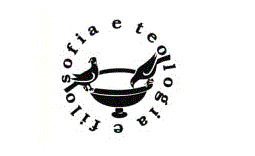


L’articolo ha come obiettivo quello di analizzare l’interpretazione di Emmanuel Lévinas sulla figura biblica di Abramo. Nelle varie narrazioni della Scrittura che hanno come soggetto Abramo compare un costante contrasto tra l’autonomia della scelta individuale e l’eteronomia della Parola di Dio; una conflittualità che, secondo Lévinas, va in realtà colta come indice di un luogo originario e a entrambe comune: l’etica. Attraverso l’analisi di alcune sezioni della Genesi, incrociando queste letture con le risonanze fenomenologiche che esse assumono nell’opera filosofica di Lévinas, mostreremo come la figura di Abramo riesca a dischiudere alla comprensione teoretica di un’autonomia etica nell’eteronomia del comando di Dio.
Parole chiave: Abramo, Lévinas, responsabilità, autonomia etica, eteronomia
The article aims to explore Emmanuel Lévinas’s interpretation of the biblical figure of Abraham. In the various narratives of Scripture which have Abraham as their subject, a constant conflict appears between the autonomy of individual choice and the heteronomy of the Word of God; a conflict that, according to Lévinas, should actually be grasped as an index of an original place that is common to both: ethics. Through the analysis of some sections of Genesis, by crossing these readings with the phenomenological resonances that they assume in the philosophical work of Lévinas, we will show how the figure of Abraham manages to disclose the theoretical understanding of an ethical autonomy in the heteronomy of the command of God.
Keywords: Abraham, Lévinas, responsibility, ethical autonomy, heteronomy